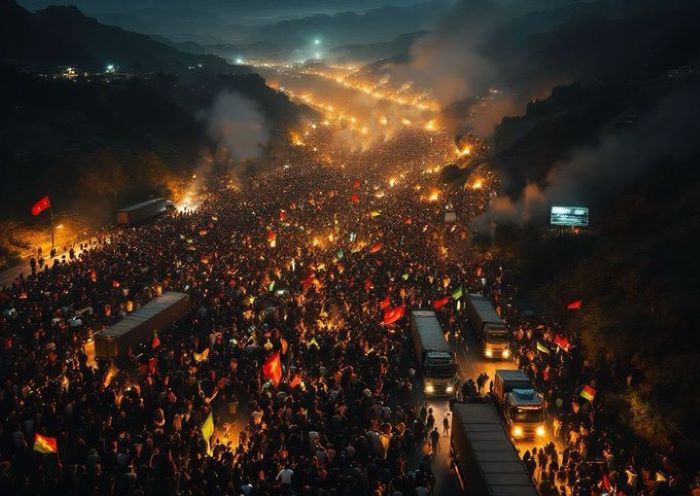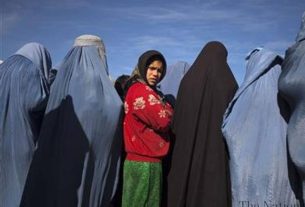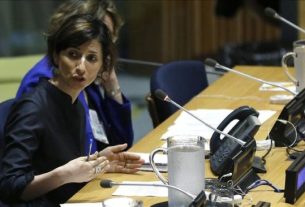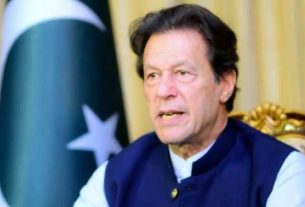In a dramatic escalation of Pakistan’s political tensions, supporters of former Prime Minister Imran Khan rallied toward Islamabad over the weekend, demanding his release from prison and the resignation of the current government. These developments, marked by violent clashes, numerous arrests, and an unprecedented security lockdown in the capital, underscore the deepening divisions within the nation.
Protests Against Alleged Political Persecution
Imran Khan, who was ousted from office in April 2022 and has since faced over 150 criminal cases, remains a polarizing figure in Pakistan. His supporters allege that the charges, including corruption and incitement, are politically motivated attempts to suppress opposition. Despite being incarcerated for more than a year, Khan continues to galvanize his base, with his Pakistan Tehreek-e-Insaf (PTI) party calling for “justice and the rule of law.”
The protests, termed as a final push by PTI, began with convoys from Khyber Pakhtunkhwa (K-P), Punjab, Sindh, and Balochistan converging on Islamabad. Footage shared online depicted supporters chanting slogans, honking, and waving PTI flags as they navigated through barricades erected by law enforcement. PTI leader Ali Amin Gandapur and others rallied their followers, urging them to press forward and not retreat until Khan’s release was secured.
Government’s Defensive Stance
Anticipating large-scale unrest, the Islamabad administration enacted stringent measures, including sealing off key areas such as the Red Zone, home to vital government buildings. Interior Minister Mohsin Naqvi confirmed that Section 144—a regulation prohibiting public gatherings—was imposed across Punjab and Islamabad. Moreover, containers were placed to block major roads, and internet services in key regions were suspended to thwart communication among protesters.
Despite these precautions, PTI convoys encountered heavy resistance from law enforcement. Intense clashes erupted at several locations, including the Ghazi Brotha Bridge and the Attock Bridge, where police employed tear gas while protesters responded with stone-pelting. At least one police constable, Mubashir, succumbed to injuries sustained during the violence, while over 70 officers were reported injured, some critically.
Education and Daily Life Disrupted
The protests also paralyzed daily life in Islamabad and neighboring Rawalpindi. The city administration ordered the closure of schools for a second consecutive day, citing security concerns. Public transportation and businesses were similarly affected, with many residents unable to commute or access essential services.
Strategic Maneuvers by PTI
PTI’s leadership emphasized that the protests were not mere political demonstrations but a larger movement for systemic change. Imran Khan’s wife, Bushra Bibi, and senior party figures addressed supporters, encouraging them to persevere until their demands were met. These include Khan’s release, the reversal of the 26th Constitutional Amendment, and what they describe as the restoration of democracy
Barrister Gohar Khan, who recently met Imran Khan in Adiala Jail, confirmed that the party remains resolute. “We will not back down until our demands are met,” he stated, dismissing rumors of a canceled protest.
Clashes Escalate, Arrests Surge
Violence continued as protesters breached several police blockades, prompting mass arrests. Reports indicate that nearly 600 PTI workers and leaders, including prominent figures like National Assembly Chief Whip Amir Dogar, were detained across Punjab. The government justified these arrests as measures to maintain law and order, with Naqvi asserting that authorities would “spare no miscreants.”
Amid the turmoil, the government has been criticized for its handling of the situation. Political analysts argue that the decision to shut down communication networks and deploy force risks alienating citizens further, especially given the ongoing economic crisis and growing public discontent.
International Implications
The unrest comes at a delicate time for Pakistan, which is grappling with economic instability and increasing scrutiny from international observers. Analysts warn that prolonged protests could destabilize the region, particularly as Pakistan’s geopolitical position makes it a critical player in South Asia.
Meanwhile, international rights groups have expressed concern over the political situation in Pakistan. Amnesty International called for the government to uphold democratic principles and avoid excessive force against peaceful demonstrators.
Outlook
As PTI supporters vow to continue their march toward Islamabad, tensions are expected to remain high. The situation underscores Pakistan’s broader challenges in balancing political dissent, governance, and public safety. While the government has expressed determination to maintain order, the persistence of the protests highlights a deeply fractured society yearning for resolution.
This protest may well mark a critical juncture in Pakistan’s political history, with significant implications for its democratic institutions and the rule of law. For now, Islamabad remains under lockdown, awaiting the next chapter in this unfolding crisis.





